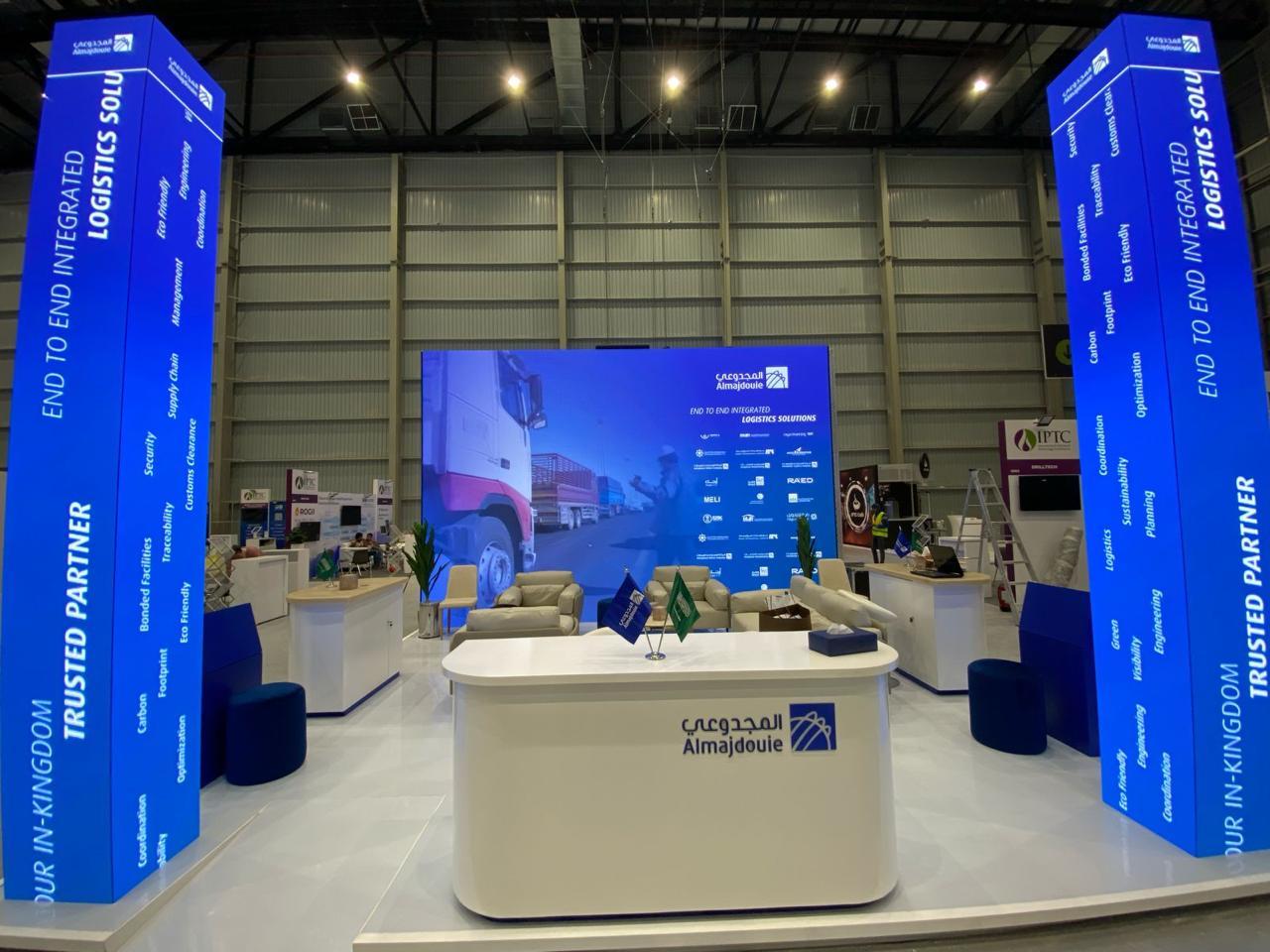Corporate event planning are essential skills that contribute to the success of any event, whether it’s a conference, exhibition, festival, or even a formal meeting. It’s a process that requires careful planning, attention to detail, and effective coordination between various stakeholders to ensure the smooth running of the event and the achievement of its desired objectives.
With the rapid development of this field, it has become necessary to adopt innovative strategies and modern technologies to ensure a successful experience for attendees and enhance the reputation of the organizing entity.

What is the meaning of corporate event planner?
Corporate event planning is the process of planning, coordinating, and executing various events, such as organizing exhibitions, conferences, parties, and festivals, with the aim of achieving specific objectives and providing a unique experience for attendees. Corporate event planning includes several key stages:
- Objective Setting: Determine the purpose of the event and the target audience.
- Advance Planning: Develop a detailed plan that includes the budget, location, timeline, and required resources.
- Execution: Organize the event according to the established plan, taking into account coordination between different teams and ensuring a smooth running of the event.
- Evaluation: After the event, the extent to which the specified objectives were achieved is evaluated, and feedback is collected to improve future events.
Corporate event planning requires multiple skills, such as strategic planning, time management, effective communication, and risk management, to ensure the Corporate event planning success and participant satisfaction.
Most Popular Types of Corporate Events You Should Know
Speaking about Corporate event planning, there are many different types of events, which can be classified by their scope, nature, audience, or content. Now, we will review the most popular types of events among many organizations and individuals across various fields.
Conferences:
These are events that bring together a large group of people who participate in mentoring sessions, specialized lectures, and enriching discussions revolving around a specific topic or field.
Conferences are considered one of the most important types of corporate event planning dubai that aim to exchange knowledge and opinions and provide useful experiences and recommendations. Furthermore, conferences fall under the category of long-term events, typically lasting a day or more and held in well-equipped halls such as hotels or specialized centers.
There is an amazing variety in conference formats, whether physical, virtual, or hybrid, which combines physical and virtual conferences. These conferences aim to achieve multiple goals, from increasing practical benefits and knowledge exchange to raising brand awareness and accelerating its impressive reach.
Trade shows:
Trade shows are exceptional events that bring together a diverse group of companies in the same industry, providing them with the opportunity to showcase their products and services to the public. The philosophy of these exhibitions revolves around innovation and highlighting the latest achievements.
With a focus on stimulating curiosity and interest in the brand. Trade shows also give the target audience the opportunity to interact directly with the products, enabling you to deliver unique experiences and leave a lasting impression.
Workshops:
Continuing our discussion of corporate event planning, workshops emerge as engaging and interactive learning experiences aimed at developing participants’ skills and abilities. These workshops are held in specially equipped environments with appropriate tools and resources for practical training.
They focus on small to medium-sized groups, are structured in a specific manner, and require prior registration. This type of event can be an excellent way to enhance skills and knowledge through direct interaction and practical application. Workshops typically last for several hours or a few days.
Allowing participants to delve deeper into the subject and better understand concepts. Furthermore, workshops can be an ideal space for participants from diverse backgrounds to learn and exchange knowledge, ultimately leading to the development of personal and professional skills, problem-solving, and the adoption of best practices that will benefit them.
Seminars:
These are corporate event planning that aim to deliver a lecture or presentation on a specific topic or problem, opening the door for discussion and dialogue with the attendees. Seminars are organized for several purposes, including encouraging communication within the team, discussing progress within the company or a specific field, or setting future goals for the organization.
The virtual type of seminar, “webinars,” offers a unique virtual opportunity, including live or recorded sessions, often free of charge. These seminars prioritize raising brand awareness, developing innovative ideas, and building strategic partnerships.
Parties:
Parties are a favorite type of event. They are events aimed at celebrating a specific occasion or honoring a person or entity, with the participation of a number of invitees. Parties are held in various spaces, such as halls, lounges, restaurants, and hotels.
And feature a special atmosphere that immortalizes moments. Additionally, parties are designed to suit the specific or general theme of the occasion, and include diverse entertainment and artistic programs, honorary performances, and award presentations.
Defining Clear Event Objectives for Successful Corporate Planning
The first step in corporate event planning is to define a tangible goal and objectives. First, start by asking yourself: Why are you organizing this event, and what do you hope to achieve? If you know your organization’s key objectives before planning, you can ensure that every aspect of your event is optimized for success.
Are you trying to raise awareness for a cause or raise a predetermined amount of donations for your upcoming project? Are you hoping to attract 50 attendees or 500?
Setting a goal with measurable success metrics will make it easier for your team to ensure you reach them.
Your tangible goals might be to attract 500 attendees, sell 100 products at the event, or raise $1 million for charity. Your intangible goals will help you achieve these tangible objectives and might include increasing awareness of a product or cause or increasing the number of people interested in your service.
Three Essential Steps for a Seamless Event
Step1:Choose a Location and Date
The first step is to choose a location and date for your event. You need to consider several factors when choosing a venue, including room size, comfort, cost, and availability. Additionally, you should book the venue as far in advance as possible to ensure availability. For the date, you should consider similar events, holidays, and key dates for your business.
Step2:Create a Marketing Plan
The second step is to create a marketing plan for the event by corporate event planning companies. You need to identify your target audience and develop a strategy to reach that audience. You can use various marketing channels such as social media, online media, newsletters, etc. You can also consider working with partners to promote the event.
Step3:Plan the Event Program
The third step is to plan the event program. You need to develop an interesting program for your target audience. You also need to ensure that the program is achievable within the allocated time and budget. You can include speeches, presentations, demonstrations, workshops, etc.
Luxe’s Expert Role in Streamlining Corporate Event Planning for Impactful Experiences
Luxe is one of the leading corporate event planning companies, dedicating its advanced expertise to creating a powerful impact by organizing exceptional events that meet clients’ needs and achieve their goals with distinction. Thanks to its professional team and strategic approach, Luxe transforms traditional events into inspiring, memorable experiences.
From start to finish, the company relies on a structured and integrated process that begins with a thorough understanding of the client’s vision and objectives. Luxe strives to develop a comprehensive strategy that ensures tangible results, starting with developing a detailed plan that includes defining objectives, budget, and target audience, all the way to executing the event with the highest standards of quality and innovation.
Because small details make a big difference, Luxe focuses on meticulously designing every element of the event, from selecting the ideal location that aligns with the nature of the event, to selecting décor that reflects the brand’s identity, to coordinating activities and providing amenities for attendees.
Furthermore, the company pays special attention to modern communication technologies and digital marketing to increase engagement with the target audience before, during, and after the event. It also focuses on data analysis and performance measurement to ensure the achievement of desired objectives and improve future strategies.
Thanks to its commitment to providing innovative solutions and exceptional experiences, Luxe has succeeded in becoming a trusted partner for many companies and organizations seeking to organize impactful events that leave a memorable impression on attendees and enhance brand image.
Conclusion
In conclusion, corporate event planning and organization is not merely a logistical process; it is an art that combines strategic planning, creativity, and precise execution. Success in this field depends on flexibility and a willingness to address challenges, as well as the ability to meet audience expectations and achieve set goals.
As the corporate event planning sector continues to evolve, a specialized event planning company like LUXE remains a prominent example of professionalism and excellence in providing innovative event planning solutions, ensuring a unique experience for attendees and contributing to the success of the event in the best possible way.
FAQs
What is a corporate event planner?
He is a professional who specializes in organizing corporate events, such as conferences, meetings, launch parties, and large gatherings. He handles all the details, from planning and coordination to execution, to ensure the event’s success and the achievement of the client’s objectives.
What are the 7 stages of event planning?
- Goal Setting
- Budgeting
- Venue Selection
- Logistics Planning
- Marketing and Promotion
- Implementation
- Evaluation and Follow-up
What are the 5 C’s of event planning?
- Concept
- Coordination
- Control
- Culmination
- Closeout
What are the 5 P’s of event planning?
- Purpose
- People
- Place
- Plan
- Promotion



